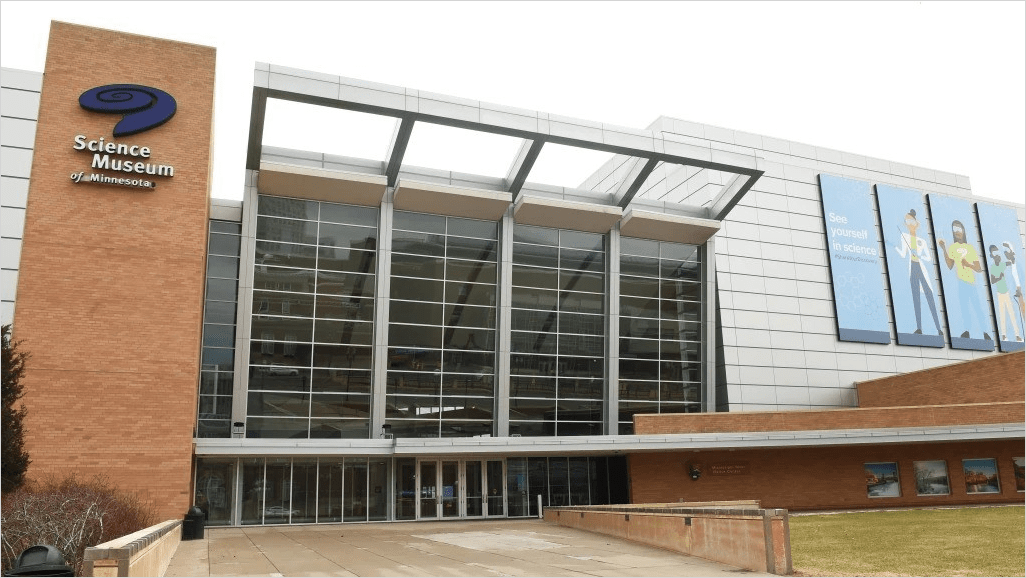
Science Museum of Minnesota receives record $6.5 million donation
The Science Museum of Minnesota announced on Wednesday it received a $6.5 million donation — the largest philanthropic gift in its 117-year history — from the estate of a longstanding donor.
William D. Wells, a globe-trotting pioneer in combining the disciplines of psychology, marketing and research for major consumer brands, authored more than 60 books and academic papers before retiring as a professor of advertising from the University of Minnesota’s School of Journalism and Mass Communication.
Wells died in September 2020, leaving behind a sizable estate that has allowed him, posthumously, to continue to encourage others to explore the intersections of scientific research, media and general education.
In 2021, Twin Cities Public Television received a $9 million gift from the Wells estate, the largest philanthropic donation in the downtown St. Paul television station’s then-64-year history. Wells had been a contributor to TPT STEM programs like “SciGirls” and “Hero Elementary.”
$6.5 million donation
The Science Museum, situated on Kellogg Boulevard overlooking the downtown St. Paul river bluffs, will use the $6.5 million Wells donation to endow the Chair of Science position, which leads the museum’s Center for Research and Collections. The role oversees some 15 staffers and scientists who conduct active scientific research and outreach in anthropology, biology, paleontology and environmental science while caring for the museum’s collections.
Wells spent part of his career working on media campaigns advocating for clean water around the world, an issue dear to his heart, said Juliette Francis, vice president of mission advancement for the Science Museum. He visited at least annually with Chair of Science Laurie Fink, who oversees water quality sampling, fossil digs and other scientific research, and he came to value the museum’s work at its St. Croix Watershed Research Station in Marine on St. Croix.
“He’s been a supporter for quite some time, and when he was thinking about legacy, it was in wanting to make sure science research continued as a focus for the museum, in particular in water research,” Francis said. “That was a piece that aligned very deeply with the issues that mattered to him.”
Fink said she visited Wells and his family in their home and took them on behind-the-scenes tours of the museum’s collections and research labs. As passionate as he was about educating youth — including a grand-daughter who was interested in becoming a marine biologist — he was even more dedicated to helping everyday adults better understand the world around them through science.
Leading authority on market research
A veteran of World War II, Wells became one of the advertising industry’s leading authorities on market research, earning his doctorate from Stanford University. Among dozens of published works, he was a co-author of “Advertising: Principles and Practice,” a 640-page textbook, as well as numerous papers from the late 1990s and early 2000s on consumer attitudes toward emerging websites and e-commerce ads.
Before joining the faculty at the University of Minnesota, he was a professor of Psychology and Marketing at the University of Chicago, and also worked for the Chicago-based advertising agency Needham Harper as its director of Corporate Research. In that capacity, he traveled the globe developing marketing strategies for major consumer brands.
Alison Rempel Brown, president and chief executive officer of the Science Museum, said in a written statement, “We are proud and honored to be the recipient of Dr. Wells’ historic gift. At the Science Museum, our work is driven by our mission to create and deliver powerful, bold STEM experiences so more people can use science to improve lives. We are grateful that Dr. Wells recognized our value as a community resource to inspire people we serve to continue learning well beyond the classroom years.”
Related Articles
F.D. Flam: Have scientific breakthroughs declined?
Skywatch: Bring in 2024 in a stellar way
Skywatch: Signs of Christmas in the skies
Skywatch: A celestial Rudolph the Red-Nosed Reindeer?
New psychedelic-like drugs: All treatment, no ‘trip’?

